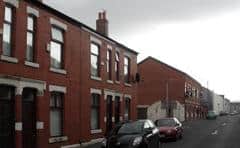Friendly agreements between neighbours about property rights may seem a good idea. However, as a High Court case showed, they may not be binding on future owners and that is why it always makes sense to get a lawyer to formalise such deals.
 A couple owned two adjoining terraced houses and obtained planning permission to build another to the side of one of them. Developing the new house would involve building over a right of way enjoyed by their neighbour. The right of way had been fenced off and unused for a number of years.
A couple owned two adjoining terraced houses and obtained planning permission to build another to the side of one of them. Developing the new house would involve building over a right of way enjoyed by their neighbour. The right of way had been fenced off and unused for a number of years.
The neighbour had agreed to the removal of the right of way from the registered title to his property on the basis that the couple would pay the costs of doing so. After he sold his home, however, the new owners refused to take that course. Faced with the frustration of their development plans, the couple launched proceedings, seeking a declaration that the right of way had been extinguished.
In dismissing their claim, the Court found that the couple’s informal agreement with the neighbour was not binding on the new owners. The right of way had not been removed from the registered title before the new owners bought their property and they had no prior notice of the agreement. The couple had also not taken up formal occupation of the right of way, having not yet built across it.
The Court noted that, by waiting until after they had been granted planning consent before taking steps to remove the right of way from the registered title, the couple exposed themselves to the risk that their unprotected and unimplemented agreement with the neighbour would cease to be enforceable. The ruling means that the right of way will remain in place unless the new owners agree to its removal.



